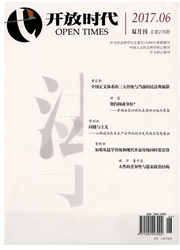

 中文摘要:
中文摘要:
本文从社群主义的视角,通过分析1948年发生在马来西亚槟城的“分离运动”,展现华侨民族主义在“民族/国家”的架构下发生转变的历史实践过程,促使我们重新思考民族主义对多元族群国家的解构和重组所带来的社会问题。文章认为,槟城华人的社群主义具有深厚的历史渊源,1948年的分离事件说明,民族/国家以“公民权资格”作为工具来调整社群关系,如果携裹本土民族主义的意志,就会不可避免地导致社群边界的强化。作为少数民族的族群常常在民族主义的挤压下释放出地方性社群主义的认同意识,尽管其目的只是为了最大限度地维护个体的权利和民主政治的基础,但无疑会削弱对民族/国家的认同,从而造成社会分离。
 英文摘要:
英文摘要:
This paper, by investigating the separatist movement in Penang, Malaysia in 1948 through the angle of communitarianism, attempts to demonstrate the historical process of the transformation of overseas nationalism in the framework of nation/state and urge the reader to reflect on the social issues that nationalism has brought to bear on the de-construction and re-composition of a multi-national state. The paper argues that communitarianism among the overseas Chinese in Penang has a long history. The separatist incidence in 1948 shows that a nation/state may use "the qualification of citizenship" as an implement to regulate communal relations, but if the will of local nationalism is also parceled up in it, the result will be sharpened communal boundaries. When pressured under nationalism, ethnic minorities tend to release the identity consciousness of local communitarianism. Although its aim is to safeguard individual right and the foundation of democracy to the greatest extent, such local communitarian identity will undoubtedly weaken the identity with nation/state and undermine social integration.
 同期刊论文项目
同期刊论文项目
 同项目期刊论文
同项目期刊论文
 期刊信息
期刊信息
